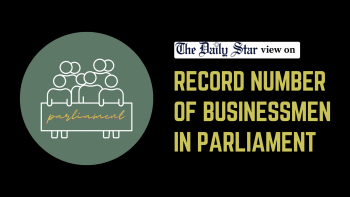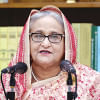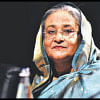Can the new cabinet part with old ways?

It is with renewed optimism that we look to Sheikh Hasina—who took oath as the prime minister for the fourth consecutive term—and her newly formed cabinet to address the pressing concerns of the people and take the country towards a secure, sustainable and egalitarian future. We congratulate them on their appointments, and wholeheartedly hope that the new government, which inherits many old problems of its own making, can take decisive actions to bring about much-needed changes to stabilise the economy, contain the cost-of-living crisis, and ease public suffering.
The process and decision of portfolio distribution has been fraught with debates in the past; and while we cannot say the newly formed cabinet is above question, we are at least glad to see some notable changes in key ministries that have suffered repeated setbacks in the past term. Ministries have traditionally been allotted based on political considerations, but now, more than ever, we need leaders who have professional expertise and knowledge in their respective fields to make informed decisions on behalf of the nation. Given the lacklustre and, in some cases, alarming performances of some of the ministries in the past, we are in dire need of better leadership in energy, economy, planning, health, and education, among others.
If we are to move forward in any kind of meaningful way, the new cabinet must pledge to check institutional and structural corruption that are holding the nation and the economy hostage.
There can be no denying that the most challenging task ahead of the new cabinet is bringing the economy, which is haemorrhaging on multiple fronts, back on its feet. Despite the urgency with which the economic crises needed to be handled, particularly over the past two years, we saw the near total absence of the concerned ministries in doling out and implementing essential reforms. Additionally, lack of accountability of various key institutions and consolidation of power and wealth among influential quarters have heavily corroded their independence and weakened their foundations. Vested quarters have been given leeway to do as they please, over and over again, at tremendous cost to the people of this country. If we are to move forward in any kind of meaningful way, the new cabinet must pledge to check institutional and structural corruption that are holding the nation and the economy hostage.
Be it the debilitating dengue situation, syndicate-driven domestic market, or widespread corruption in government services, we have repeatedly seen our policymakers deny the glaring issues affecting people. The rule of the new cabinet must begin with acknowledging where it went wrong in the first place and learning from those mistakes, if it really wants the fifth term of the Awami League government to usher in a future that reflects the ideals and aspirations of the Liberation War. The policymakers, who have remained disconnected from the people for too long, must find a way to translate their despair into tangible actions for their betterment.


 For all latest news, follow The Daily Star's Google News channel.
For all latest news, follow The Daily Star's Google News channel. 









Comments